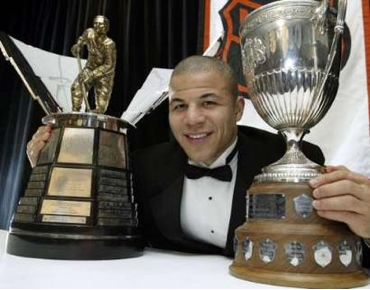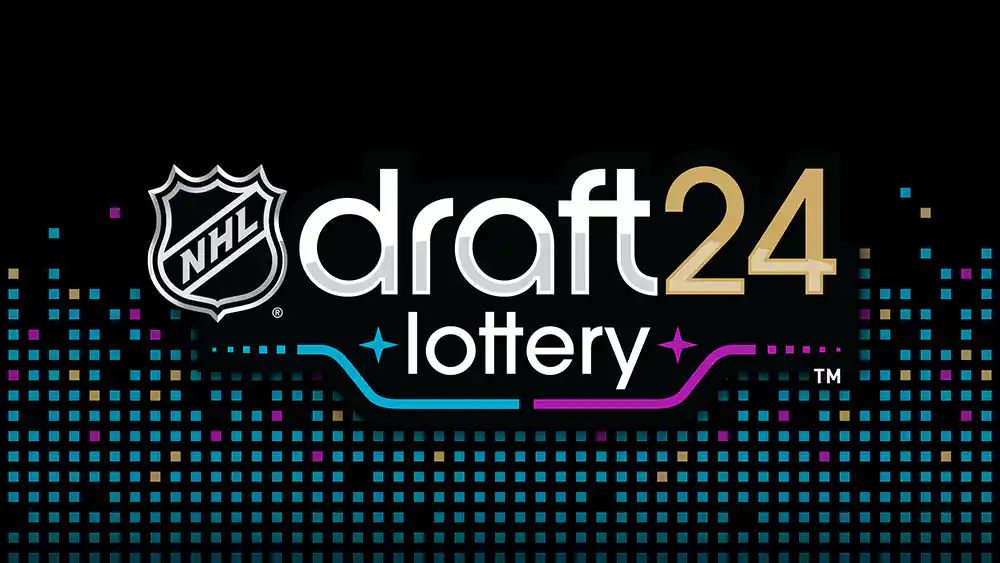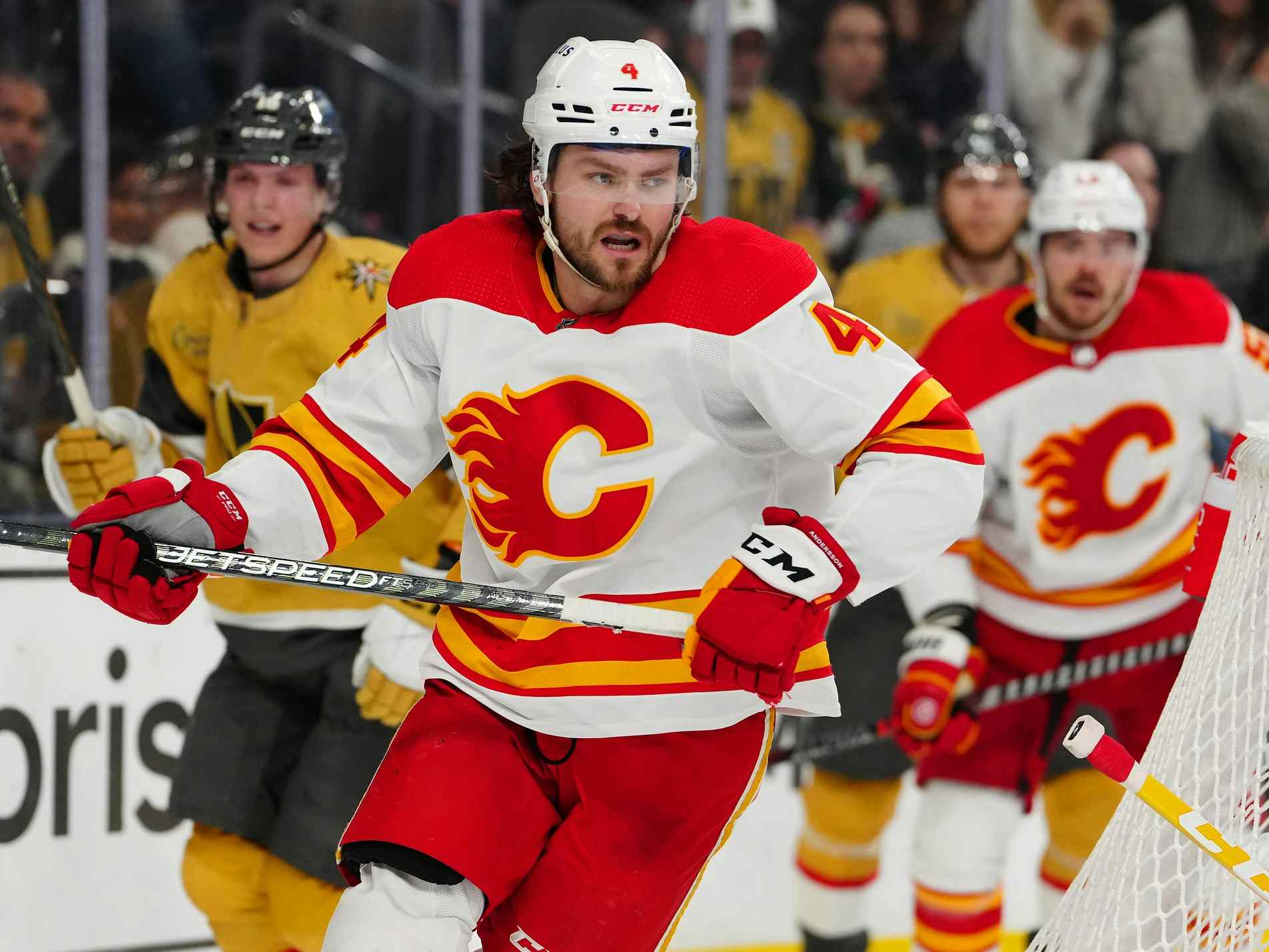What Makes an Elite Player…Elite?
By Kent Wilson
12 years ago(This is the third entry of the FN contributor search, this time by frequent commenter Vintage Flame. Make sure to keep the comments respectful because VF is a moderator ’round these parts.)
By Vintage Flame**
e·lite / i’lēt / Noun 1. A group of people considered to be the best in a particular society or category, especially because of their power, talent or wealth.
Over the past season or two… or three, there have been many threads and discussions debating whether or not Jarome Iginla was, or rather is still, an elite player in the NHL? I think to answer that, you have to look at what it is that actually makes a player “elite” in status. Do you scrutinize the underlying numbers that are so prevalent and monitored in forums such as Flames Nation? Or is there another aspect to a player’s game that elevates him to an elite level; be it in the stats pages or in the eyes of his peers?
Well, let’s look at the numbers first! Iggy is 34, going into his 15th season in the NHL with the Flames. Last year he recorded 43 goals, which ranked him 3rd in the NHL. He had 43 assists, placing him 27th; and a total of 86 points, putting him 6th overall in NHL scoring. Those aren’t bad numbers, especially since it was his highest goal total since the ’04 season when he hit the 50 goal mark.
One of the most debated variables in looking at Iginla’s numbers has been the availability of, what fans consider, a number one centre on his line. It’s no secret that the team has struggled to find that key asset for the Captain that will lessen the burden on the guy shouldering the load on the scoresheet. It seems in the past that, when Iggy is scoring, the team is winning; albeit barely. It seems that other role players “appear” to take too many nights off because Iginla is playing his ass off, so these other contributors (eg. Bourque, Glencross and Jokinen) aren’t putting in a full effort. The biggest problem with this trend is that when Iginla stops scoring, these other guys aren’t able to pick it up and carry him through any slumps or droughts that he experiences. This might have a lot to do with the ongoing struggle the Flames have to establish a set identity for the team.

Despite what is said in the media, or by the coaches & management, the identity of this team starts and stops with #12. Unfortunately, this is also what widens the gap between teams like Calgary and Vancouver. The Canucks have the ability to move players up and down the lineup to disrupt the flow of their opposition. If a team shuts down the Sedins, the Canucks have the luxury of Ryan Kesler, who has shown he can play with just about any forward on the team. Conversely, when the Flames start shuffling the deck of forwards, it’s out of desperation to get Iginla some quality ice time, usually to the detriment of the other lines and, ultimately, the team. The Flames have tried the buckshot attitude with the top line ever since 2001-02 when Conroy was the best fit for Iginla, both on and off the ice. Iggy registered his highest goal total [52] and his 2nd highest point total [96] of his career. He won the Art Ross, the Rocket Richard and the Lester B. Pearson awards. It was also a career year for Conroy in all three categories of goals, assists and points. So what’s happened since then? Plain and simple, the Flames have had a dwindling supporting cast that has made it possible for opposition to focus on cutting off the head of the dragon, to watch the body fall behind.
This is what brings me to other side of the “elite” coin. Despite all the short comings of the team as a whole, Iginla continues to put up the numbers. But I think what adds to the argument for the Captain as an elite player is that, in the course of these seasons, he continues to make the people he plays with better players. We have seen it with Conroy, we saw it with Mike Cammalleri in the 08-09 season, and we see it now with Alex Tanguay. It has been frustrating to see all these players brought into the organization to help the play of Iginla, only to see it have an inverse effect and subsequently result in the signing of big contracts on other teams. We have also seen this on the international stage. There is no doubt that, in the 2002 Olympics, the pairing of Iginla with Sakic filled up the scoresheet when it mattered. The same could be said for the 2010 Olympics when Iginla was paired with Sid the Kid. When it matters, in the NHL or International play, Iginla seems to be the spark or the catalyst that just makes everyone around him play to their full potential, if not more.
The debate will continue until the day he retires about when he stopped being an elite player in the NHL. However, I think one certainly has to or should consider the bigger picture when looking at a player of Iginla’s calibre. For a 34 year old player to not only finish 6th in NHL scoring, but to heighten the play of those around him, while carrying the entire weight of the team, the fans and the city on his back… one has to recognize that there is more to him than just numbers and statistics.
I’m not an expert by any means when it comes to Corsi or Fenwick stats. I know that his GVT rating is not even comparable when looking at the young snipers and leaders around the league. But what I have seen is this guy lead a pack of misfits and mistakes for the better part of the last decade, and still be respected and admired by his peers, be them teammates or opposition. I have no doubt that there are fans who would rather see Iginla traded for a player who puts up the leader type numbers. Then, I also have little doubt that any of those ‘leader’ players would hesitate in playing with #12, if given the chance. It stands to reason that, if “elite” means to be one of the best because of your talent, then Iggy can’t be limited to Corsi or Fenwick stats to determine if he falls into this category. His talent extends beyond the tip of his hockey stick. It’s reflected in the success of his teammates and in the hearts of his fans. I wonder what words will be used to describe Iginla as he undoubtedly goes into the Hall of Fame? I am as certain as I write these words, that “Elite” will be among them.
** Vintage Flame is a Calgary based sports junkie that prefers to call hockey a "religion" rather than an addiction. He believes there are two types of hockey fans. Those who cheer for the Flames, and those who don’t understand the sport yet. When not engulfed in the hockey season, VF can usually be found passing the time with the NFL or commenting on this, that, and everything on Flames Nation.
online surveys
Recent articles from Kent Wilson




